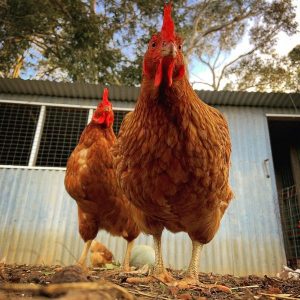
Psittacosis (sometimes called ornithosis) is an infection of the lung (pneumonia) caused by the bacterium Chlamydophila (Chlamydia). The bacterium is carried by both wild and domestic birds, which often show no sign of disease.
People who have close contact with birds, such as bird breeders pet shop employees, pet owners, poultry farm workers, abattoir workers, veterinarians (vets) and individuals who live near high-density native bird populations are at increased risk. This can include farmers with chickens, ducks, turkeys, geese, guinea fowl, or aviaries with pet birds. Exposure to psittacosis in pregnancy has been associated with maternal and foetal death.
Infection is caused by inhaling dust containing dried bird faeces or dry eye and nasal secretions from infected birds.
Symptoms of psittacosis may be often associated with the flu (flu-like) and include:
- fever and chills
- nausea and vomiting
- muscle and joint pain
- diarrhoea
- weakness
- fatigue
- cough, typically dry
- abrupt onset of headache
There have been reported cases in cattle, sheep, horses, cats and dogs. If the infection is contracted, treatment involves antibiotic therapy.
Find out more about this topic on Better Health Channel
Fast facts:
- Psittacosis is a lung infection caused by bacteria carried by birds.
- Poultry and parrot-like birds may carry this disease.
- People become infected with psittacosis by inhaling dust containing dried droppings or secretions from infected birds.
- Avoid beak bites and beak-to-mouth contact with birds.
- Use a grass catcher when mowing.
- Always wash hands thoroughly after tending to birds.
- Wear masks and gloves while cleaning bird cages and poultry sheds to reduce the risk of infection.
References used for this topic
More information:
Centres for Disease Control (US)
Psittacosis
Department of Health (Aust)
Psittacosis (ornithosis) case definition
BMC Infectious Diseases Journal
Animal sources for zoonotic transmission of psittacosis: a systematic review
The Journal of Obstetrics and Gynaecology Research
Gestational psittacosis: A case report and literature review
Clinical care:
Australian Government Department of Health
Psittacosis (ornithosis): CDNA National Guidelines for Public Health Units
NSW Health
Psittacosis
|
|